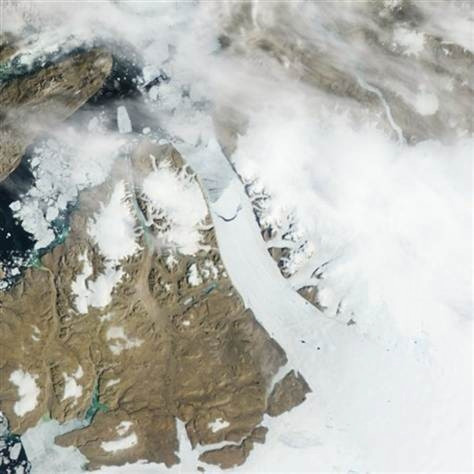Huge Iceberg, Twice The Size Of Manhattan, Break Off Petermann Glacier In Greenland [PHOTO]

An iceberg twice the size of Manhattan has reportedly broken free of one of Greenland's largest glaciers.
Scientists are reporting the separation to be an indication of another dramatic change to the warming island.
According to the Associated Press, scientists had been keeping a close eye on a specific long crack near the tip of the northerly Petermann Glacier. Concerns were eventually raised to a higher level on Monday, July 16, after the 46 square mile iceberg completely separated from the glacier.
University of Delaware professor Andreas Muenchow was one of the first researchers to notice the break.
It's dramatic. It's disturbing . . . we have data for 150 years and we see changes that we have not seen before, Muenchow told AP. It's one of the manifestations that Greenland is changing very fast, he said.
In a development that does not seem to come off as a coincidence, AP also notes that the same glacier spawned an iceberg twice that size two years ago.
Those paying close attention to the issue suspect global warming to be the reason for the break, but have yet to be able to come up with conclusive evidence.
And while Glaciers do give way to icebergs naturally, scientists are looking at the rapid rate of break-offs from Petermann as unprecedented.
This is not part of natural variations anymore, NASA glaciologist Eric Rignot, who camped on Petermann 10 years ago, told the newswire.
Ohio State University ice scientist Ian Howat has said that If it continues, and more of the Petermann is lost, the melting would push up sea levels.
The new huge iceberg is likely to follow the path of the one in 2010, which broke apart into smaller icebergs headed north, then west and last year started landing in Newfoundland according to Muenchow.
© Copyright IBTimes 2024. All rights reserved.






















